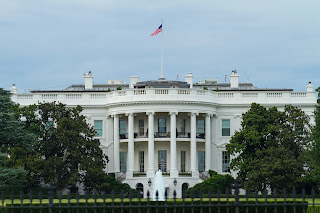Donald J. Trump, the 45th President of the United States, remains one of the most polarizing figures in American politics. His tenure in office from 2017 to 2021 was marked by a distinctive leadership style, unfiltered communication, and a unique approach to politics. This article delves into the characteristics that defined Donald Trump, explores his leadership style, and examines his views on politics.
Characteristics of Donald Trump
1. Confidence:
Donald Trump is known for his unwavering self-confidence. Whether it's negotiating international trade deals or addressing his supporters at rallies, he exudes a sense of conviction that resonates with his base. This confidence played a crucial role in his rise to political prominence.
2. Business Acumen:
Before entering politics, Trump was a successful businessman and real estate mogul. His wealth and business experience were central to his political persona. He often touted his ability to "make deals" and bring a business-oriented approach to governance.
3. Communication Style:
Trump's communication style was unfiltered and direct. He frequently used Twitter to communicate with the public, often bypassing traditional media channels. His tweets were often controversial, garnering both support and criticism.
4. Populism:
Trump's appeal to his base was rooted in populism. He portrayed himself as a champion of the working class and promised to "drain the swamp" in Washington, D.C. This resonated with many Americans who felt disenfranchised by the political establishment.
5. Nationalism:
Trump's "America First" agenda was a key component of his political platform. He advocated for policies that prioritized American interests over global commitments, challenging international agreements like the Paris Climate Accord and the Iran Nuclear Deal.
Donald Trump's Leadership Style
1. Decisiveness:
Trump's leadership style was characterized by decisiveness. He often made quick decisions and was unafraid to take controversial actions, such as implementing immigration policies like the travel ban and ending the Deferred Action for Childhood Arrivals (DACA) program.
2. Delegation:
While Trump projected strong leadership, he also relied heavily on advisors and cabinet members to implement policy. His administration included a rotating cast of high-profile figures, including Steve Bannon, Rex Tillerson, and John Bolton.
3. Negotiation:
Drawing from his business background, Trump approached international relations as a series of negotiations. He engaged in high-stakes diplomacy with leaders like Kim Jong-un of North Korea, attempting to denuclearize the Korean Peninsula.
4. Relationship with the Media:
Trump's relationship with the media was marked by both antagonism and symbiosis. He often criticized mainstream media outlets as "fake news" while simultaneously using their coverage to reach his base directly through social media.
5. Use of Executive Orders:
Trump frequently used executive orders to advance his policy agenda, bypassing Congress when necessary. This approach allowed him to implement changes in areas such as immigration, healthcare, and environmental regulations.
Donald Trump's Views on Politics
1. Conservatism:
Trump aligned himself with the Republican Party and embraced conservative principles, particularly on issues like tax cuts, deregulation, and the appointment of conservative judges, including three Supreme Court justices.
2. Immigration:
Trump's stance on immigration was a defining aspect of his political agenda. He advocated for stricter border security, the construction of a border wall, and the end of the DACA program, which protected undocumented immigrants brought to the U.S. as children.
3. Economy:
Trump often pointed to the strong pre-pandemic economy as one of his administration's major achievements. His administration enacted significant tax cuts, deregulation, and trade policies aimed at boosting economic growth.
4. Foreign Policy:
Trump's foreign policy approach was marked by a transactional mindset. He pursued a tougher stance on China, renegotiated trade deals like NAFTA (rebranded as the USMCA), and brokered peace agreements between Israel and several Arab nations.
5. Climate Change and Environment:
Trump withdrew the United States from the Paris Climate Accord, rolled back environmental regulations, and promoted fossil fuel industries. His administration emphasized energy independence and questioned the science of climate change.
Donald Trump's presidency left an indelible mark on American politics. His confident and unconventional leadership style, rooted in business acumen and populism, appealed to a significant portion of the electorate. While his policies and approach to politics remain polarizing, there is no doubt that his impact on the nation's political landscape will be discussed and debated for years to come. Understanding the characteristics, leadership style, and views of Donald Trump is essential for comprehending the dynamics of contemporary American politics.



.jpg)


No comments:
Post a Comment